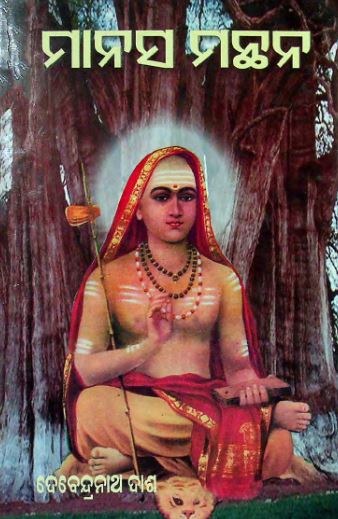Manasa Manthana is a renowned Odia essay book that delves into the philosophical and spiritual teachings of Adi Sankaracharya, one of the greatest thinkers and scholars in Hinduism. The book was translated by Debendra Nath Das and published in 2009, making these ancient scriptures accessible to a wider audience.
Adi Sankaracharya, also known as Adiguru, was a legendary figure in Indian history who played a significant role in the revival of Hinduism during the 8th century. He was a prolific writer, philosopher, and theologian who composed numerous texts and commentaries on Vedic scriptures. His teachings emphasized the importance of self-realization, detachment from worldly desires, and the ultimate goal of attaining spiritual enlightenment.
Manasa Manthana explores the timeless wisdom and profound insights of Adi Sankaracharya, offering readers a deeper understanding of Hindu philosophy and spiritual practices. The book covers a wide range of topics including the nature of reality, the concept of Brahman (the ultimate reality), the paths to liberation (moksha), and the importance of meditation and self-inquiry.
Debendra Nath Das, the translator of Manasa Manthana, has done a commendable job in bringing these ancient texts to life for modern readers. His skillful translation captures the essence and spirit of Adi Sankaracharya’s teachings, making them accessible and relatable to a contemporary audience.
One of the key highlights of Manasa Manthana is its emphasis on the concept of Sub-Kabya, which refers to the unity of the individual soul (atman) with the universal soul (Brahman). Adi Sankaracharya’s teachings stress the interconnectedness of all beings and the importance of realizing the true nature of the self. Through introspection and contemplation, one can uncover the divine essence within and transcend the illusions of the material world.
In addition to its philosophical depth, Manasa Manthana also provides practical guidance on how to lead a virtuous and fulfilling life. Adi Sankaracharya’s teachings on ethical conduct, detachment, and self-discipline serve as a moral compass for navigating the challenges of everyday life and striving towards spiritual growth.
Overall, Manasa Manthana is a valuable resource for anyone seeking to deepen their understanding of Hinduism, explore the teachings of Adi Sankaracharya, and embark on a spiritual journey toward self-realization. With its timeless wisdom and profound insights, this Odia essay book is a testament to the enduring legacy of one of India’s greatest sages and scholars.
In conclusion, Manasa Manthana is a must-read for anyone interested in delving into the rich tapestry of Hindu philosophy and spirituality. Through its lucid translation and insightful commentary, this book serves as a beacon of light guiding readers towards self-discovery, inner peace, and ultimate liberation.
Books Info
| Books name | Manasa Manthana |
| Author | AdiSankaracharya; Debendra Nath Das, Tr. |
| No Of pages | 162 |
| Publisher | Shweta Sanketa Saraswata Mancha |
| Publication | 2009 |
| Printed At | Dibya Mudrani |
| Distributor | NA |

